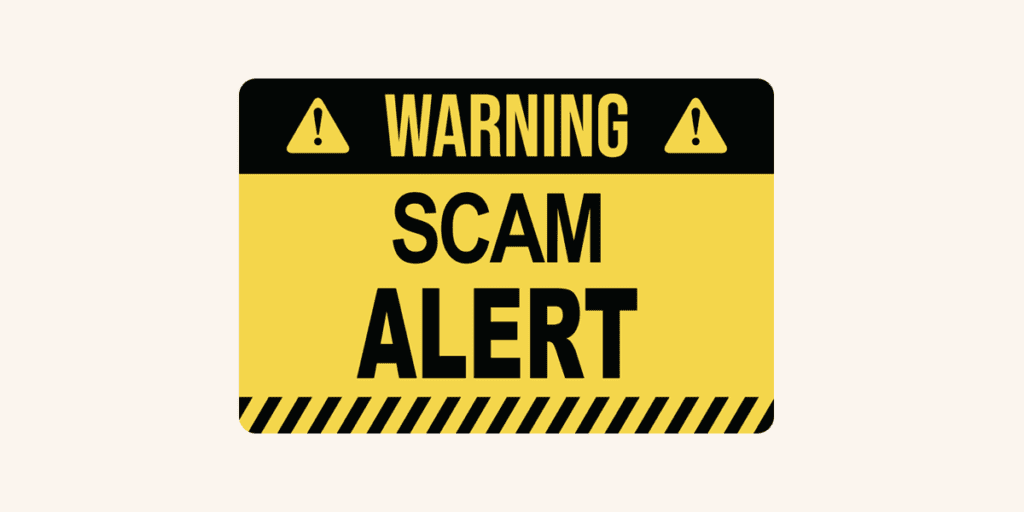Real estate scams come in all shapes and sizes. Don’t get duped. We wrote this article to shed light on some of the unsavory situations homeowners can find themselves in and to help identify scams. Seller beware.
How can I avoid wire fraud in a real estate transaction?
Wire fraud is a significant problem in the real estate industry, with the National Association of Realtors noting that real estate wire fraud is one of the most prevalent cybercrimes in the U.S.
Wire fraud typically goes something like this: Via email, scammers pretend to be with the title company, a real estate agency, closing attorney, or other real estate professional. They provide wire instructions that send money directly into the scammer’s bank account — money that may be difficult if not impossible to recover once sent.
To avoid falling for this type of wire fraud, never click on unsolicited emails. Be wary of emails that change instructions you’ve already received from a company. Never send personal information via email, such as your social security number.
It’s always a good idea to double-check any wire information by making a phone call to the escrow company’s office and speaking with your representative prior to making the wire.
I’ve been contacted by a company that says it can lower my home loan payments if I pay an upfront fee.
If you find yourself in a pinch on your mortgage and receive an offer for an incredibly low interest rate or otherwise almost unbelievable deal on a new loan from a “mortgage agency,” you may be talking with a scammer. Advance-fee loans, loan flipping, and loan fraud all target homeowners who need a lower monthly mortgage rate to keep their home. They promise discounted loan rates for a high initial fee but often just hang the consumer out to dry.
Anytime someone reaches out to you and promises something that seems too good to be true, it may be prudent get more information before sharing confidential information.
Other red flags may include:
Asking for sensitive banking or personal information
Not being willing to provide testimonials
Offering deals no other company is offering
Lack of connection with a traditional bank or well-known real estate company or service provider
If you’re in the foreclosure process, scammers will know you’re eager for a solution and attempt to leverage that motivation in their favor. Always research companies you do business with online, and never sign anything without reading it carefully and having it vetted by a knowledgeable third party.
I’m selling my house and need to find a moving company. How do I avoid getting scammed?
The same rules apply here. Believe it or not, moving companies are often used as a conduit for fraud. Be on the lookout for:
Drastically lower rates than other moving company’s
High-pressure sales
Large deposits due up front
Moving companies can scam you in all kinds of ways, from doubling or tripling their fees with hidden charges, taking a deposit and disappearing, or loading up your belongings and accepting payment and never delivering.
Always a good idea to get a moving company’s license number and check for any complaints with the U.S. Department of Transportation. Take a look at online review sites and keep an eye out for patterns of overcharging. And a tried and true way to ensure quality service is to ask friends and family members for referrals.
You’ll want to be clear whether your moving quote is a binding quote, a non-binding quote, or a binding not-to-exceed quote. A small deposit may be required to secure your moving date. However, it’s common practice to pay the majority of the bill as you accept delivery of your belongings.
I need to sell my house, but I’m afraid of getting conned. How can I protect myself?
The best way to avoid getting scammed is to deal with reputable companies or agents with a history of doing business in your area.
Real estate agents are licensed by each state and you can look up an agent’s license using your state’s database. Real estate agencies should be well-known in your area. You can call an agent’s home office to double-check that they work where they say they do.
Lawyers are also licensed by state, and every state has a way of verifying lawyers credentials.
Everyday, the team at CoreMark Homes find ways to make sellers smile.
Whether you need to sell your home quick or you simply want your real estate transaction to be convenient and painless, CoreMark assists homeowners selling with confidence. The team at CoreMark provides support at every step of the sales process to ensure a smooth and seamless transaction.
If you’re interested in selling off market, find out why a growing number of sellers choose CoreMark.
To get a no-obligation cash offer for your property, visit coremarkhomes.com

